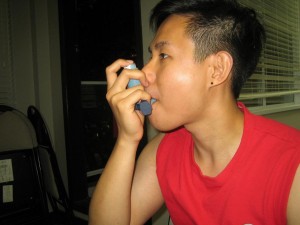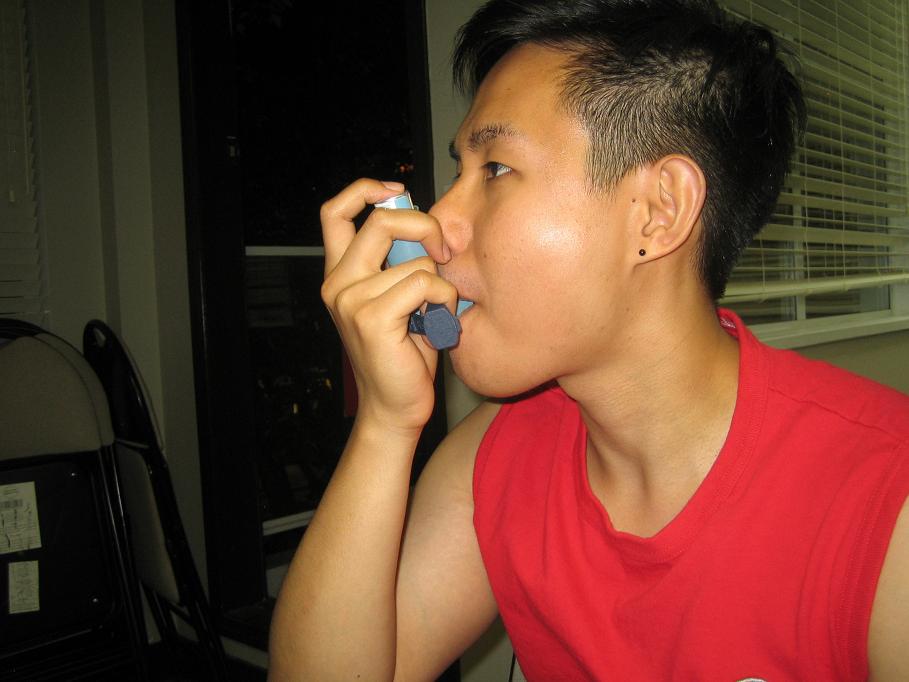
Emphysema is a type of chronic obstructive pulmonary disease (COPD) where there is a damage to the air sacs in the lungs, thereby causing difficulty in breathing. It can take place along with chronic bronchitis and it is one of the leading causes of morbidity of lung diseases in the United States.
The material posted on this page on emphysema and respiratory emergencies is for learning purposes only. To learn to recognize and manage breathing and respiratory emergencies sign up for first aid and CPR classes with a training provider near you.
Emphysema makes it hard for you to catch your breath. You may also have a chronic cough and trouble breathing during exercise. Smoking is the leading cause of emphysema. When you have emphysema, your lungs cluster together. The inner cells of your alveoli weaken and rupture eventually, creating one big air sac. This will cause decreased space for oxygen exchange between the air sacs and the blood. When you exhale, the air sacs do not work properly. The air that was previously collected is trapped, thereby leaving no space for fresh air to enter.
You can have emphysema without noticing any signs and symptoms. Gradually, as the condition progresses, shortness of breath (a classic sign) also develops gradually. Emphysema isn’t considered a problem if it does not interfere with your daily activities. However, emphysema eventually causes shortness of breath, even at rest when the condition progresses.
Common Risk Factors Of Emphysema
- Smoking. The risk of emphysema increases when you are a smoker. The number of years and the amount of tobacco used in your lifetime is relevant in calculating your risk for the disease.
- Age. Emphysema gradually develops with age, but one becomes at a higher risk upon reaching the age of 60. It occurs at a much younger age among smokers.
- Second hand smoke exposure. Secondhand smoke or passive smoke is a smoke that you inadvertently inhale from someone else’s cigarette, putting you at risk for the condition.
- Exposure to dust (occupational in nature). If you inhale fumes from certain chemicals or dust from grain, cotton, wool or mining products, your risk increases.
- Pollution exposure. Indoor and outdoor pollutants increase the risk of developing emphysema.
A number of laboratory examinations are used to determine if you have an emphysema. Upon meeting with the doctor, you might be taken imaging tests such as X-rays and CT scans. Laboratory tests and lung function tests are also taken.
First aid management for emphysema
Shortness of breath is the most common symptom of emphysema. A person experiencing of difficulty in breathing should be allowed to rest as the condition may get worse during activities and do the following:
- Loosen any tight clothing
- Help the person take a prescribed medication for emphysema or assist in using an inhaler to improve breathing.
- Do not give fluid or water to drink
- Let the person sit on a chair and then slowly forward to make breathing easier and to assist the flow of air and oxygen.
Call 911 immediately when the person manifests the symptoms of worsening condition in difficulty of breathing, the fingernails turned bluish and becomes mentally confused.
Reference:
MedlinePlus. Emphysema. Retrieved on July 5, 2014 from http://www.nlm.nih.gov/medlineplus/emphysema.html

